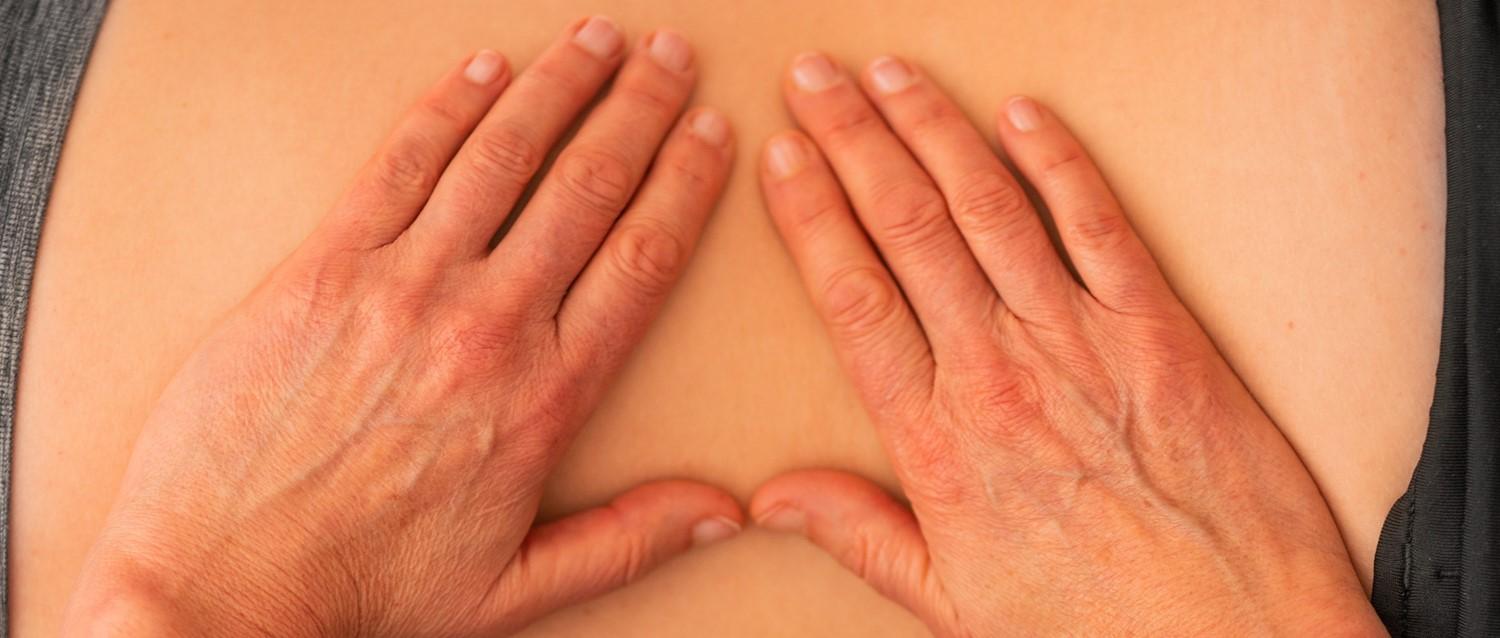
Can regular massages improve your mental health?
Peer reviewed by Dr Sarah Jarvis MBE, FRCGPAuthored by Lydia SmithOriginally published 6 Nov 2021
Meets Patient’s editorial guidelines
- DownloadDownload
- Share
- Language
- Discussion
For many of us, a massage is an occasional treat to relax and unwind. They can also help to ease aching muscles and tight shoulders, particularly after being hunched over at work or after doing strenuous sport. However, research suggests having regular massages can help us psychologically too - and may even improve our mental health.
In this article:
What is massage therapy?
Massage therapy is the manual manipulation of muscles and other soft tissues in the body, including connective tissue, ligaments and tendons. The purpose is to help people relax physically and mentally, while relieving aches and pains caused by everyday life.
"Massage is a very broad term for something that in the professional setting, has many recognised modalities," says massage therapist Gina Lilley, a member of the General Council for Soft Tissue Therapies (GCMT).
"These modalities are professionally taught and the therapist should hold qualifications in anatomy and physiology. What is common amongst all forms of bodywork is professional touch - working with the soft tissue of the body to effectively restore injured tissue, remove restrictions in movement that have occurred, support the stressed body and allow relaxation.”
Do your homework
It's worth pointing out that massage therapist is not a 'protected title' - meaning there are no legal requirements for qualifications or registration. However, there are several voluntary regulatory bodies which monitor standards for massage therapists.
So do check that your therapist is registered with a reputable governing body or professional association such as the CNHC (the UK register for complementary healthcare practitioners), the GRCCT (the UK federal regulator for complementary therapies) or the GCMT.
Why might massage therapy improve mental health?
Back to contentsAlthough massages are not a replacement for treatments such as talking therapy or medication, research suggests they may work well as an additional complementary therapy. Multiple studies suggest regular massage may help to improve symptoms of anxiety and depression, while encouraging relaxation.
Several studies have investigated the use of massage for patients with generalised anxiety disorder. In one small study, women with the condition were treated twice weekly with one-hour massages. Afterwards, they reported decreased feelings of anxiety and increased feelings of self-confidence.
Research has also suggested massage may help people living with long-term health conditions, such as fibromyalgia, which causes pain in the body. In 2014, a systematic review and meta-analysis of nine studies concluded that massage therapy, if continued for at least five weeks, improved pain, anxiety and depression in people with fibromyalgia by promoting relaxation.
A separate review of four studies found that massage therapy may also help to improve the quality of life for people with HIV or AIDS.
Continue reading below
Massage therapy is holistic
Back to contentsLilley explains that massage therapy is a holistic experience that combines both physical issues, such as muscle tension, with relaxation techniques that can boost good mental health.
"Research has shown that although we might think we are working solely with the physical body, evidence suggests that when we come into relationship with our clients and place our hands on their bodies we are making contact with all physical and mental processes," she says.
"Professionally trained massage therapists have a vital role to play in the emotional and psychological health of their clients. Massage therapy of all orientations helps clients regulate physical and emotional responses predominately through the autonomic nervous system - which regulates body processes, such as blood pressure and the rate of breathing."
Decreased cortisol, increased endorphins
Back to contentsOne of the ways massage may help boost mental health is by lowering levels of the stress hormone cortisol. In stressful situations we perceive as a threat, our bodies release cortisol via the sympathetic nervous system - the 'fight or flight' system. While the short-term release of cortisol is normal and can help us react to danger, spending extended periods of time in this state of high alert can be problematic for our mental health.
Various studies have suggested that massage may help to reduce levels of cortisol, making us feel less anxious and more relaxed. One study found that a single 45-minute Swedish massage led to a decrease in cortisol levels in individuals with no prior mental health condition. It also led to an increase in oxytocin, nicknamed the 'love' hormone for its role in behaviours including trust, romantic attachment and mother-infant bonding.
Massage can also lead to the release of endorphins - hormones that act as the body's natural pain reliever - as well as the neurotransmitter serotonin and the 'feelgood' hormone dopamine. These chemicals are linked to mood regulation.
Continue reading below
Distraction and mindfulness
Back to contentsWhen getting a massage, we are also free of the daily stresses that can contribute to low mood and anxiety. For a short period of time, we experience a break from work emails, messages and the daily grind, to focus on our well-being.
The massage can provide a distraction as a form of mindfulness. The treatment space is also often softly lit, which can boost feelings of calm - and clients are treated to quiet, relaxing music. Essentially, massage therapy can help people enter a meditative state for a short period of time, which studies suggest can aid psychological health.
Additionally, research suggests the positive effects of massage sessions may last for days after the treatment too.
While massages can help us relax, though, it's important for people to speak to their doctor about a mental health problem such as anxiety or depression. They may recommend counselling, medication, a combination of both or another treatment.
Patient picks for Stress management

Mental health
Can playing video games help your mental health?
Video games are often criticised for being too violent, too loud or antisocial. But a new era of gaming is upon us, with several new titles focusing on creating a stress-free environment. Could playing games, contrary to popular belief, actually improve your mental health?
by Gemma Grange

Mental health
Redefining work-life balance: what is the Quiet Quitting movement?
Quiet firing is when employers gradually reduce an employee's responsibilities, hoping they'll resign. In contrast, quiet quitters set their own boundaries - actively disengaging from excessive work demands to protect their mental wellness. But while quiet quitting might seem good for your health, could it have some long-term downsides?
by Victoria Raw
Article history
The information on this page is peer reviewed by qualified clinicians.
6 Nov 2021 | Originally published
Authored by:
Lydia SmithPeer reviewed by
Dr Sarah Jarvis MBE, FRCGP

Ask, share, connect.
Browse discussions, ask questions, and share experiences across hundreds of health topics.

Feeling unwell?
Assess your symptoms online for free
Sign up to the Patient newsletter
Your weekly dose of clear, trustworthy health advice - written to help you feel informed, confident and in control.
By subscribing you accept our Privacy Policy. You can unsubscribe at any time. We never sell your data.